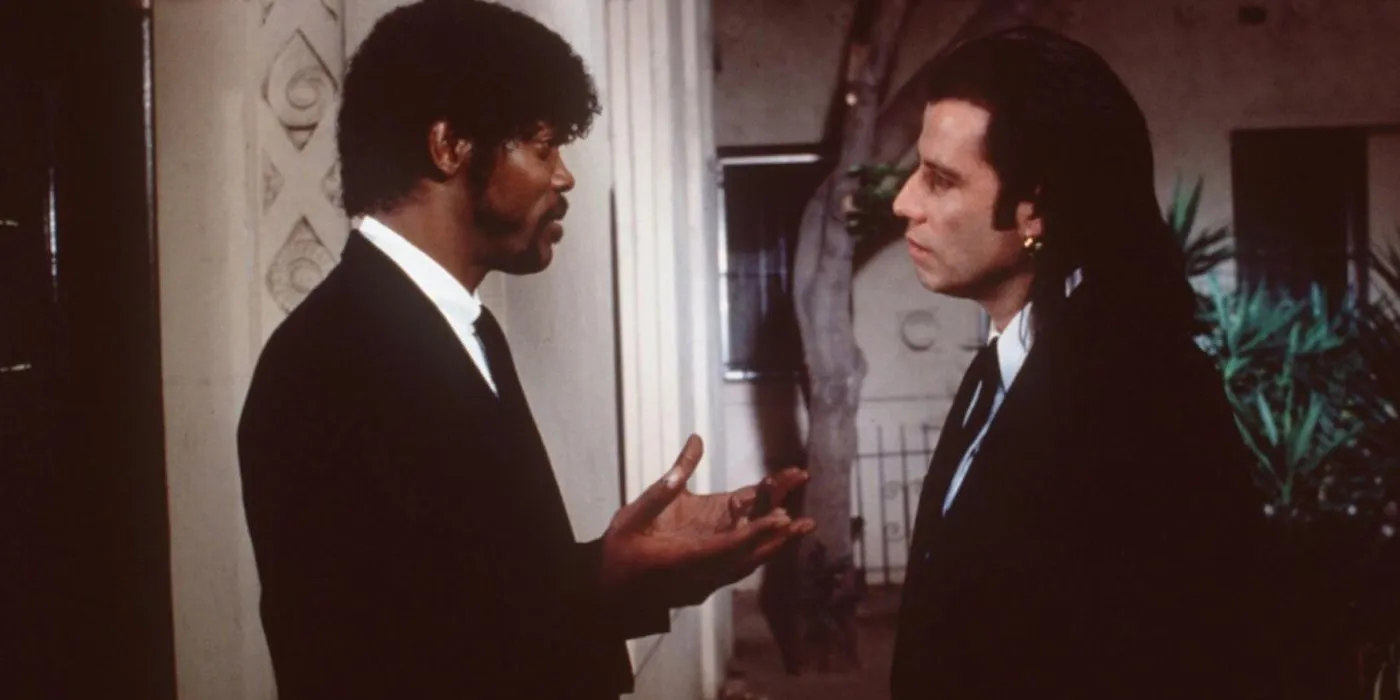
As we approach the three-decade mark since Quentin Tarantino’s groundbreaking film Pulp Fiction was controversially passed over at the 1995 Oscars, the decision stands out as increasingly perplexing. Released in 1994, Pulp Fiction marked Tarantino’s second feature film, following his electrifying debut with Reservoir Dogs just two years earlier. While both films received acclaim, it was Pulp Fiction that solidified Tarantino’s reputation as a master filmmaker, retaining its status as a high point in his illustrious career.
This iconic movie played a pivotal role in revitalizing John Travolta’s career, placing him alongside the phenomenal Samuel L. Jackson, creating a cinematic partnership for the ages. Celebrated for its non-linear storytelling, Pulp Fiction garnered immediate success, securing the prestigious Palme d’Or at the 1994 Cannes Film Festival, and impressively grossing over $200 million on a modest $8 million budget. Even with such accolades, the film’s inability to clinch the coveted Best Picture Oscar has continued to baffle film enthusiasts nearly 30 years later.
The 1995 Best Picture Winner: Forrest Gump
An Unforeseen Outcome

Released alongside Pulp Fiction, Forrest Gump immediately captivated audiences and critics alike, amassing over $670 million worldwide. Directed by Robert Zemeckis, it remains his most financially successful film, emerging just four years after the conclusion of his iconic Back to the Future trilogy. Forrest Gump received a staggering 13 Academy Award nominations in 1995, ultimately winning six, including Best Picture, Best Director, and Best Actor for Tom Hanks, who secured his second consecutive Oscar following his win for Philadelphia.
Pulp Fiction’s Oscar Snub
A Case of Misdirection





In the same awards season, Pulp Fiction was nominated for seven Oscars, including Best Picture and Best Director, alongside individual nominations for Uma Thurman (Best Supporting Actress), Samuel L. Jackson (Best Supporting Actor), and John Travolta (Best Actor). Yet, shockingly, it won a single Oscar for Best Original Screenplay, marking Tarantino’s first Oscar win, a feat he would repeat with Django Unchained.
Despite the film’s earlier triumph with the Palme d’Or, Pulp Fiction still faced a significant lack of recognition at the Academy Awards, having lost both Best Picture and Best Director. This snubbing reverberated through the industry, given that it was widely regarded as the standout film among its contemporaries. Regardless of the awards outcome, the impact of Pulp Fiction set a foundation for Tarantino’s impressive filmography in the decades that followed.
A Shift in Cultural Perception
The Diminishing Shine of Forrest Gump

While Forrest Gump is not a bad film and still holds its ground as a well-loved classic, the passage of time has not been as kind. Notably, it surpassingly triumphed over both Pulp Fiction and The Shawshank Redemption, resulting in ongoing discussions about its lingering legacy. Although all three films share a distinctive place in American cinematic history, Forrest Gump often stands out as an anomaly.
In stark contrast to the timelessness exuded by Pulp Fiction and The Shawshank Redemption, which continue to be celebrated by critics and audiences, Forrest Gump has faced increasingly critical reevaluation. While Pulp Fiction and The Shawshank Redemption consistently rank among IMDB’s Top 250 Movies—with the latter currently holding the prestigious top spot—Forrest Gump finds itself placed lower, reflecting a shift in cultural sentiment regarding its merit.
Ultimately, the failure to award Pulp Fiction with the Best Picture Oscar in 1995 remains a notable disappointment, particularly as it is often acknowledged as the best film of that year. Nevertheless, its legacy thrives, proving that the impact of a film is not solely defined by award recognition. Pulp Fiction endures as a quintessential masterpiece and continues to be celebrated, demonstrating its lasting relevance in cinema history.




Leave a Reply